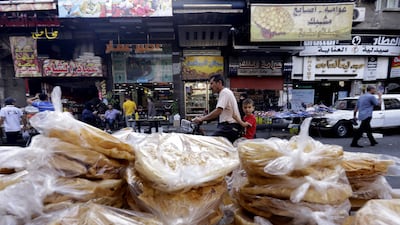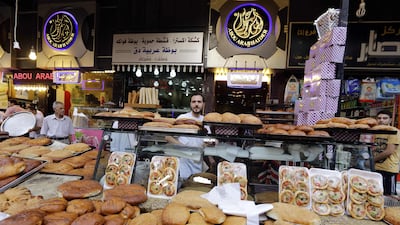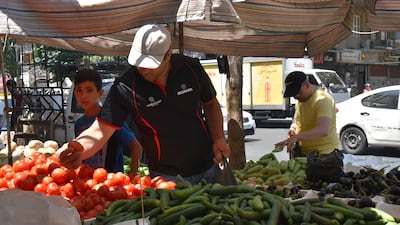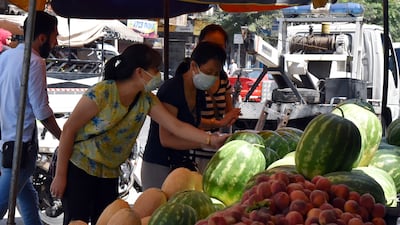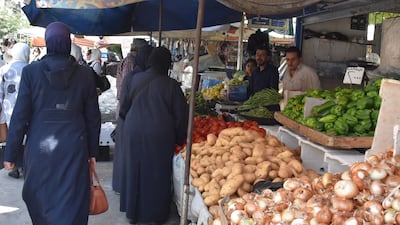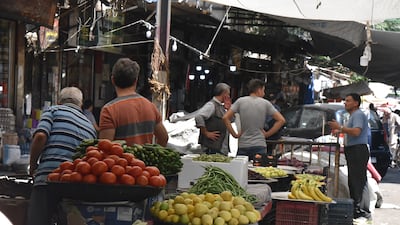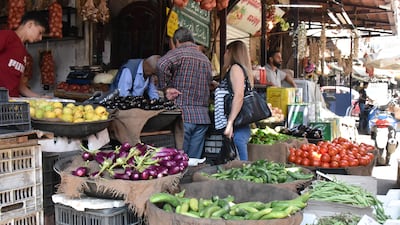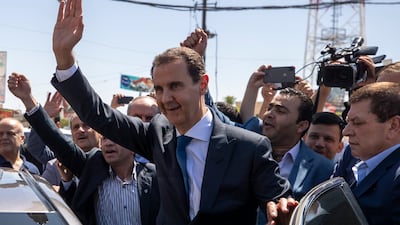For the UN’s point man on Syria’s decade-long conflict, Geir Pedersen, navigating a pathway to peace between quarrelsome global powers like the US, Russia, Iran and Turkey is a case of two steps forward, three steps back.
Addressing the UN Security Council on Tuesday, Mr Pedersen said gains achieved during some 17 months of relative calm in Syria had been shattered recently by renewed fighting in the north-west, the north-east and the southern province of Deraa.
For Mr Pedersen, the clashes in Idlib, Latakia, Aleppo, Hama, Raqqa and Deraa — where about 40,000 civilians have been forced to flee their homes this past month — is as much a problem of geopolitics as it is of Syria’s warring forces.
“These developments remind us that the conflict in Syria is far from over,” said the Norwegian diplomat.
“We need a credible political process as well as more sustained international co-operation.”
His comments came hours after an explosion at a base housing members of Hayat Tahrir Al Sham, an Al-Qaeda linked group in Idlib, killed and wounded dozens of fighters — the latest example of deadly violence in the north-west, which is the last major rebel stronghold in the country.
Mr Pedersen maintains a calm and practical demeanour, but his comments to the council hinted at frustrations over carrying out a Sisyphean task and then watching his diplomatic boulder roll back down the hill.
The job is “not easy”, he lamented.
Peace talks were at an “impasse” due to a “lack of trust, and also of political will”, which has “paralysed efforts to advance a political solution” between the government of Syrian President Bashar Al Assad and opposition groups, he said.
The diplomat is in charge of shepherding the Syrian Constitutional Committee, which comprises representatives from Mr Al Assad’s government, opposition and civil society, and has the mandate to draw up a new constitution leading to UN-supervised elections.
The committee has met five times since October 2019. Its latest meeting in January ended with no progress on drafting a new charter after government delegates rejected proposals — and the war rumbled on.
Few analysts expect the group to make real progress. The war’s front lines are largely unchanging and Mr Al Assad’s forces, with foreign support, have recaptured most of the country, giving the president little reason to seriously negotiate with opponents.
The US and other western powers can use sanctions and reconstruction cash as leverage against Mr Al Assad, who is battling an economic crisis, a collapsing currency and soaring inflation, but they otherwise wield little influence over events in Syria.
On-the-ground realities are instead influenced by Turkey, which supports Syrian rebels in the north-west, and Mr Al Assad’s military backers, Iran and Russia. Moscow has cast its UN Security Council veto to shield Damascus 16 times.
Mr Pedersen’s three predecessors were similarly stumped.
He took over in January 2019 from Italian-Swedish diplomat Staffan de Mistura, who followed veteran Algerian diplomat Lakhdar Brahimi and former UN chief Kofi Annan. They all quit the job, complaining it was nigh impossible to make progress.
The result has been a UN that looks like a bystander in Syria’s conflict.
The UN's special envoy for Syria commands a $16.5 million-per-year budget and a team of some three dozen staffers, including his deputy, Bahraini UN apparatchik Khawla Matar, and Marianne Gasser, a Swiss veteran of the Red Cross aid group, who runs his office in Damascus.
In March, Mr Pedersen proposed a “new international format” for bringing together Russia, the US, Iran, Turkey and other key powers for some “quiet diplomacy” in an effort to cut a deal that would end Syria’s conflict for good.
He has in recent weeks met Russian, American, Iranian, European, Turkish and Arab foreign ministers and diplomats in the hope of launching a sixth constitutional committee meeting or making some other gains — but as of yet, nothing has come of his efforts.
Syria topped the international agenda in June and July, when US President Joe Biden and his Russian counterpart Vladimir Putin accommodated each other by keeping an aid corridor open on the Turkey-Syria border, but the accord did not lead to any wider co-operation.
“More buy-in is needed in the form of relevant players being ready not only to identify what they seek but also what they can deliver on,” Mr Pedersen said on Tuesday.
Syria's war has killed around half a million people since it started in 2011 following a brutal crackdown on anti-government protests. Half the country's prewar population of 23 million has been displaced, more than five million of them living as refugees outside the country.
The Norwegian Refugee Council and a dozen other aid groups said this week that drought, rising temperatures and lower rainfall were leaving more than 12 million people across Iraq and Syria without water.
The neighbouring countries, both battered by years of conflict and mismanagement, need action to combat severe water shortages, the groups said. The drought is also disrupting electricity supplies as low water levels impact dams, which in turn affect hospitals and other key infrastructure.
Jolien Veldwijk, the Syria-based director for CARE International, said the water crisis was the “worst in years” and called for “all hands on deck in terms of funding and financing” and long-term solutions to the issue.
“We are really raising the alarm bells because we have never seen it as bad as we are seeing it now,” said Ms Veldwijk.
“We cannot wait. Now is the time to save lives.”


